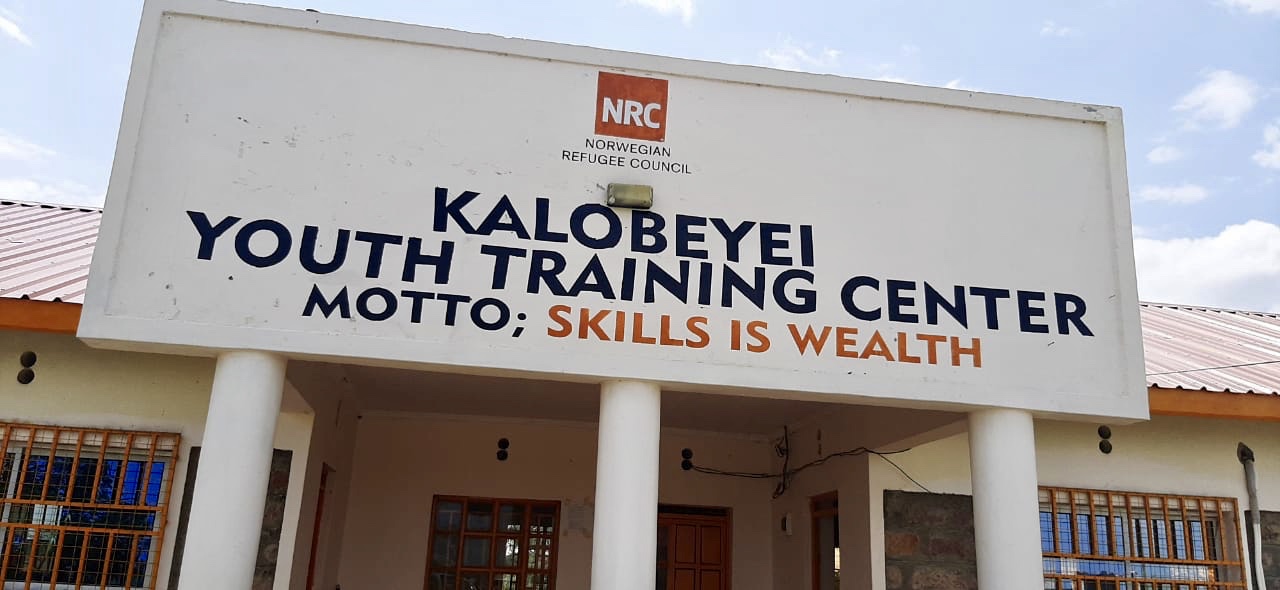Tolossa Asrat – KANERE Staff Writer, February 2021
With diminished opportunities for third country resettlement for refugees, UNHCR and its partners have sought new solutions for the growing protracted refugee population in Kakuma and Kalobeyei.

As a response to the lack of economic opportunities in Kakuma, the Norwegian Refugee Council (NRC) and the International Trade Center (ITC) have come up with a strategy to provide soft skills training to support refugee and host communities to achieve self-reliance. This strategy seeks to address refugee dependency on aid and to improve livelihoods. This strategy has received praise from refugees on its new approach to help refugees build their own livelihoods.
Refugee Employment and Skill Initiative (RESI) is a project initiated by the ITC and implemented by the NRC in Kakuma and in the Kalobeyei settlement. It has been running since 2018, and it uses trade-led and market-based solutions to create income-generating opportunities for refugees and host communities so that they can build towards economic self-reliance.
“The training is helping me to get a job and I have been working as freelancer” Says, Martha Ali, a 2020 cohort.
The training offers attendees the opportunity to connect with employers to attain online freelance work.
Income-generating trainings have been implemented in Kakuma for decades, but they have not been as successful as developmental projects like refugee employment and life skill initiatives in helping refugees to attain partial financial independence. Like other trainings in Kakuma, RESI has challenges as well; however, with this time of limited and shrinking resources, life skills trainings have been seen as the best opportunity for refugees in Kakuma.
Life skills trainings like RESI has been gaining attentions from refugee’s community due to the lack of opportunities for incentive work in Kakuma. For decades, NGOs have hired refugees as incentive workers, in which they are paid a monthly rate that is far below the average salaries of their non-refugee Kenyan counterparts. This has been one of the only available income-generating opportunity for Kakuma workforce. While incentive jobs have provided an avenue for some refugees to earn a small monthly income, thus fostering some hope for a few, the availability of such opportunities has been shrinking due to funding cuts and Covid-19.
“The lack of access to electricity and network connectivity are the major challenges freelancers have been facing in Kakuma” says Ide, a RESI Alumni, who is currently working as a freelancer at UP-work.
Even though total self-reliance is not completely possible for refugees in Kakuma, projects like RESI provide at least some opportunities for refugees to become partially independent.
English language, Digital Marketing and Entrepreneurship are few courses offered at the center in blended learning formats.
In addition to providing skills-training, exposure to professional experiences, and networking opportunities, the NRC and the ITC could provide trainees with starter kits, small sums of credit, or other tools in order to increase the chances for refugees to become partially self-reliant. This would require inter-agency and intergovernmental coordination.
RESI is sponsored by the government of Netherlands and is designed to enhance economic capabilities of refugees.
